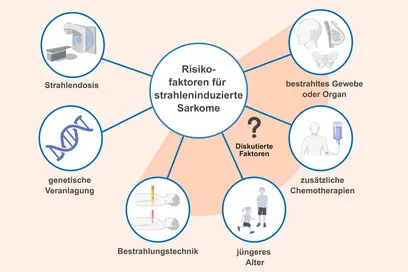Zystenniere, Nierenfibrose oder das Nierenzellkarzinom: Viele Erkrankungen der Ausscheidungsorgane sind charakterisiert durch eine Überproduktion oder – im Gegenteil – durch den Ausfall charakteristischer Proteine in den Nierenzellen. Ein internationales Team unter Federführung von Wissenschaftlern aus dem Deutschen Krebsforschungszentrum und dem Universitätsklinikum Heidelberg entwickelte nun ein Tiermodell, um die Entstehung dieser Leiden besser zu untersuchen.
Die Forscher fügten in das Erbgut von Mäusen ein genetisches Schaltelement ein, über das die Produktion krankheitstypischer Proteine ausschließlich im Nierengewebe an- oder abgeschaltet werden kann. Ausgelöst wird dieser Schalter einfach durch den Zusatz des Antibiotikums Tetracyclin im Futter der Tiere.
Um zu prüfen, ob sich die Entstehung von Nierenkrankheiten an den genveränderten Tieren untersuchen lässt, kurbelten die Wissenschaftler im Nierengewebe der Mäuse die Produktion von c-Myc an. Bei zahlreichen Tumoren ist ein erhöhter Spiegel dieses Transkriptionsfaktors beschrieben. Bereits kurze Zeit nach Aktivierung des c-Myk-Gens entwickelten die Tiere Zysten, die zum Versagen der Organe führten. Bei einigen Mäusen entdeckten die Pathologen auch Nierenzellkarzinome. Als Reaktion auf die Überexpression eines anderen Signalmoleküls entwickelten die Mäuse Nierenfibrosen.
Bislang scheiterten Untersuchungen der Krankheitsentstehung an genveränderten Tieren häufig daran, dass die zu untersuchenden Proteine bereits im Mäuseembryo überproduziert werden. Dadurch kommt es oft zu schweren Missbildungen der Tiere, die sinnvolle Aussagen unmöglich machen. „Besonders vorteilhaft an unserem Modell ist, dass wir die krankheitstypischen Proteine in der Niere zu jedem beliebigen Zeitpunkt an- oder abschalten können“, erläutern Privatdozent Dr. Robert Kösters vom Institut für Humangenetik der Universität Heidelberg und Professor Dr. Hermann-Josef Gröne aus dem Deutschen Krebsforschungszentrum. „So können wir den natürlichen Verlauf der Krankheitsentstehung oder auch Heilungsprozesse gut simulieren.“
Milena Traykova-Brauch, Kai Schönig, Oliver Greiner, Tewfik Miloud, Anna Jauch, Manja Bode, Dean W Felsher, Adam B Glick, David J Kwiatkowski, Hermann Bujard, Jürgen Horst, Magnus von Knebel Doeberitz, Felix K Niggli, Wilhelm Kriz, Hermann-Josef Gröne und Robert Koesters: An efficient and versatile system for acute and chronic modulation of renal tubular function in transgenic mice. Nature medicine, 24. August 2008
Über das DKFZ
Das Deutsche Krebsforschungszentrum (DKFZ) ist mit mehr als 3.000 Mitarbeiterinnen und Mitarbeitern die größte biomedizinische Forschungseinrichtung in Deutschland. Wissenschaftlerinnen und Wissenschaftler erforschen im DKFZ, wie Krebs entsteht, erfassen Krebsrisikofaktoren und suchen nach neuen Strategien, die verhindern, dass Menschen an Krebs erkranken. Sie entwickeln neue Methoden, mit denen Tumoren präziser diagnostiziert und Krebspatienten erfolgreicher behandelt werden können. Beim Krebsinformationsdienst (KID) des DKFZ erhalten Betroffene, Interessierte und Fachkreise individuelle Antworten auf alle Fragen zum Thema Krebs.
Um vielversprechende Ansätze aus der Krebsforschung in die Klinik zu übertragen und so die Chancen von Patientinnen und Patienten zu verbessern, betreibt das DKFZ gemeinsam mit exzellenten Universitätskliniken und Forschungseinrichtungen in ganz Deutschland Translationszentren:
- Nationales Centrum für Tumorerkrankungen (NCT, 6 Standorte)
- Deutsches Konsortium für Translationale Krebsforschung (DKTK, 8 Standorte)
- Hopp-Kindertumorzentrum (KiTZ) Heidelberg
- Helmholtz-Institut für translationale Onkologie (HI-TRON) Mainz – ein Helmholtz-Institut des DKFZ
- DKFZ-Hector Krebsinstitut an der Universitätsmedizin Mannheim
- Nationales Krebspräventionszentrum (gemeinsam mit der Deutschen Krebshilfe)
Das DKFZ wird zu 90 Prozent vom Bundesministerium für Forschung, Technologie und Raumfahrt und zu 10 Prozent vom Land Baden-Württemberg finanziert und ist Mitglied in der Helmholtz-Gemeinschaft Deutscher Forschungszentren.


